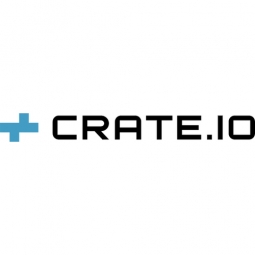
Technology Category
- Analytics & Modeling - Machine Learning
- Infrastructure as a Service (IaaS) - Cloud Computing
Applicable Industries
- Equipment & Machinery
- Packaging
Applicable Functions
- Human Resources
- Maintenance
Use Cases
- Personnel Tracking & Monitoring
- Real-Time Location System (RTLS)
Services
- Testing & Certification
The Customer
ALPLA
About The Customer
ALPLA is a world leader in the area of packaging solutions, producing high-quality packaging for renowned brands such as Coca-Cola and Unilever, as well as other brands in the food, drinks, cosmetics, and cleaning industries. The company employs 20,900 employees at 181 locations across 46 countries. As a global leader, ALPLA is committed to innovation and efficiency in its operations, and is constantly seeking ways to improve its production processes and reduce costs. The company's move to leverage IoT technology to enhance its factory efficiency is a testament to its forward-thinking approach and commitment to operational excellence.
The Challenge
ALPLA, a global leader in packaging solutions, faced several challenges as the complexity of their production machinery increased. The need for highly trained specialists in each factory led to higher personnel costs, difficulties in recruiting experienced talent at each location, and costly personnel turnover. Furthermore, less experienced operators running the machines sub-optimally impacted resource consumption and overall equipment effectiveness (OEE). ALPLA also faced the challenge of monitoring visual inspection systems in every line of their plants, which was almost impossible to do manually. In 2016, ALPLA decided to use data from the 900 different types of embedded sensors in each factory to address these issues. However, their initial choice of SQL Server as the data store for the sensor data proved inadequate, as it was unable to cope with their data requirements.
The Solution
ALPLA switched to CrateDB, a solution perfectly suited for IoT workloads. CrateDB offered several advantages including easy migration of data and code from SQL Server, a dynamic schema that allowed ALPLA to combine all their 900 different sensor readings into a single table for easier maintenance and faster querying, and easy and economical scaling on elastic clusters of inexpensive servers. Most importantly, CrateDB's real-time performance, enabled by columnar indexes cached in memory, allowed the solution to execute dashboard queries 250x faster than SQL Server. ALPLA integrated sensor data from multiple factories and production lines into a central 'mission control', staffed by experts who monitored production via interactive dashboards. These centralized experts could give direction to less experienced, lower-cost factory workers, thereby improving efficiency.
Operational Impact
Quantitative Benefit

Case Study missing?
Start adding your own!
Register with your work email and create a new case study profile for your business.
Related Case Studies.

Case Study
Smart Water Filtration Systems
Before working with Ayla Networks, Ozner was already using cloud connectivity to identify and solve water-filtration system malfunctions as well as to monitor filter cartridges for replacements.But, in June 2015, Ozner executives talked with Ayla about how the company might further improve its water systems with IoT technology. They liked what they heard from Ayla, but the executives needed to be sure that Ayla’s Agile IoT Platform provided the security and reliability Ozner required.

Case Study
IoT enabled Fleet Management with MindSphere
In view of growing competition, Gämmerler had a strong need to remain competitive via process optimization, reliability and gentle handling of printed products, even at highest press speeds. In addition, a digitalization initiative also included developing a key differentiation via data-driven services offers.

Case Study
Predictive Maintenance for Industrial Chillers
For global leaders in the industrial chiller manufacturing, reliability of the entire production process is of the utmost importance. Chillers are refrigeration systems that produce ice water to provide cooling for a process or industrial application. One of those leaders sought a way to respond to asset performance issues, even before they occur. The intelligence to guarantee maximum reliability of cooling devices is embedded (pre-alarming). A pre-alarming phase means that the cooling device still works, but symptoms may appear, telling manufacturers that a failure is likely to occur in the near future. Chillers who are not internet connected at that moment, provide little insight in this pre-alarming phase.

Case Study
Premium Appliance Producer Innovates with Internet of Everything
Sub-Zero faced the largest product launch in the company’s history:It wanted to launch 60 new products as scheduled while simultaneously opening a new “greenfield” production facility, yet still adhering to stringent quality requirements and manage issues from new supply-chain partners. A the same time, it wanted to increase staff productivity time and collaboration while reducing travel and costs.

Case Study
Integration of PLC with IoT for Bosch Rexroth
The application arises from the need to monitor and anticipate the problems of one or more machines managed by a PLC. These problems, often resulting from the accumulation over time of small discrepancies, require, when they occur, ex post technical operations maintenance.

Case Study
Data Gathering Solution for Joy Global
Joy Global's existing business processes required customers to work through an unstable legacy system to collect mass volumes of data. With inadequate processes and tools, field level analytics were not sufficient to properly inform business decisions.







